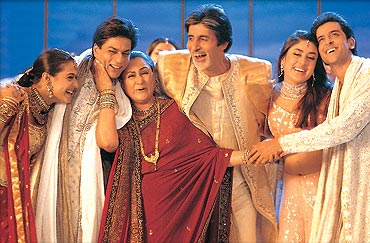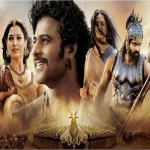The following post is published courtesy of Chandra garu, who kindly gave permission to reprint a version of his article originally posted on July 24, 2013
See thou character. Give thy thoughts no tongue,
Nor any unproportion’d thought his act.
Be thou familiar, but by no means vulgar.
The friends thou hast, and their adoption tried,
Grapple them to thy soul with hoops of steel;
But do not dull thy palm with entertainment
Of each new-hatch’d, unfledg’d comrade. Beware
Of entrance to a quarrel; but being in,
Bear’t that the opposed may beware of thee.
Take each man’s censure, but reserve thy judgement.
Costly thy habit as thy purse can buy,
But not express’d in fancy; rich, not gaudy;
For the apparel oft proclaims the man,
And they in France of the best rank and station
Are most select and generous in that.
Neither a borrower nor a lender be;
For loan oft loses both itself and friend,
And borrowing dulls the edge of husbandry.
And it must follow, as the night the day,
Thou canst not then be false to any man.
Farewell; my blessing season this in thee!
By the time a son understands what his father or mother said, he will have a son to question his thoughts (sic.). Sons and daughter have a responsibility to respect views of the elders, at the same time not falling into the trap of sentimentalism to the extent of not having their own views. We can analyze this with what Shakespeare said centuries back.
Do not give vent your thoughts overtly, nor put into action your covert thoughts. Circumspection is needed about voicing your thoughts and acting on them. This applies universally. Make friends after trying their adaptability to your tastes and purse. Make such, your bosom friends, but never entertain lavishly on any new found friend. Never pick up quarrel but once you are in it, never back out. Famous Telugu poet Vemana wrote this part Centuries prior to Shakespeare thus:
పట్టుపట్టరాదు పట్టివిడువరాదు
పట్టెనేని బిగియ పట్టవలయు
పట్టువిడుటకన్నా పడిచచ్చుటేమేలు
విశ్వదాభిరామ వినుర వేమ!
Take never a stance that’s too rigid,
Stand once taken never turn livid,
Once held tight never lose your hold,
Better be wasted than loosen your attitude.
తల్లితండ్రులందు దయలేని పుత్రుండు
పుట్టనేమి? వాడు గిట్టనేమి?
పుట్టలోని చెదలు పుట్టదా గిట్టదా
విశ్వదాభిరామ వినుర వేమ! 15
An unsympathetic son,
A nest-full of vermin,
What if they are born,
For parents aren’t they barren?
This is how Vemana described an unkind son towards parents. Instances are not lacking where parents who spent all their life’s earnings on children begging for alms while children enjoy not only their blood, but also the richness acquired through sacrifice of their blood.
The number of years a human lives on earth is predestined and no one should curse the other for living so many years. I have seen a son grieving their father is living even after he attained superannuation. “When shall I enjoy my life?”, he asks. This question is likely to be repeated few years hence.
It is time we adapt our cultural values in relation to family relations, and both elders and children adapt to the changing societal equation, the globalization of thoughts and economy, the trials and tribulations of the day to day life and other aspects, leaving aside sentiments that despoil our family peace.
When the Ocean of Milk was churned by the angels and demons, both Nectar and poison oozed out. How we enjoy the Nectar and how swallow the poison is left to our conscience without hurting ourselves when we churn the Ocean called Family, with both the angels and demons in our inner thoughts fighting with each other always.
You can follow Chandra garu on his blog here and on Twitter here.
Disclaimer: This article represents the opinions of the Author, and should not be considered a reflection of the views of the Andhra Cultural Portal.

![[Reprint Post] Family Relations – Changing Equations for Elders](http://andhraportal.org/wp-content/uploads/2014/11/k3g-150x150.jpg)

![[Reprint Post] Swamy Vivekananda & Women’s Empowerment](http://andhraportal.org/wp-content/uploads/2015/01/swami-vivekanand-quotes-150x150.jpg)


